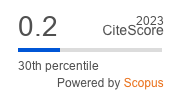Semantic Normativity
Abstract
Semantic normativists believe that meaning has a constitutive part that imposes certain obligations on language users. The most famous candidates for such a part of meaning, according to them, are correctness, truth and intention. Semantic anti-normativists, in contrast, argue that each of these candidates is either not a constitutive part of meaning or, even if it is, it does not produce any obligations. In this paper, firstly, I show the account and the failure of the three above mentioned candidates respectively ; secondly, I introduce and use of Davidson’s triangulation thesis in order to argue for a more plausible candidate, namely linguistic communication.



